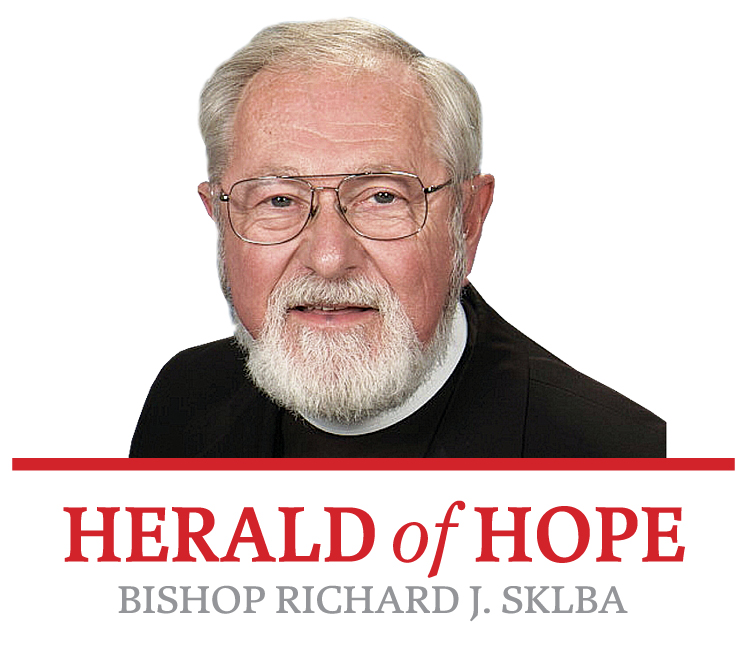Herald of Hope
This past week, the priests of the archdiocese gathered for our annual spring convocation. The time always includes some continuing education and plenty of opportunities to renew friendships, pray for the sick and even exchange the sort of gossip that mark colleagues and partners in the work of the Gospel. New spring assignments were announced, and the young men about to be ordained as our newest priests of the archdiocese this weekend were introduced. We also benefit each year from a few encouraging words from our archbishop. Once again, it was a wonderful and truly renewing few days. Being retired, and therefore not nearly as active among the groups as in years past, it was also a great time for me to greet old friends and make a few new ones. Archdiocesan clergy and members of our many religious orders were all in the mix. We met out at Fontana in Walworth County. It was wonderful.
My own life, however, was uniquely complicated this year because those very same days were also the occasion for the annual National Workshop for Christian Unity, which had chosen Milwaukee as the location for its meeting this year. Catholic folks appointed as diocesan delegates for that work mingled with a host of other Christians who share the same commitment and responsibility in their own church communities. Because of my own experience of decades in that work, I knew many of the people who gathered in Milwaukee for that common mission last week. I served as a local voice of welcome.
Back in 2008, I had been elected chairman of the USCCB National Committee for Ecumenical and Interreligious Affairs. In that capacity, I was privileged to appoint Catholic participants, men and women with special backgrounds, to serve as expert participants in the dozen and a half various formal theological dialogues that the Catholic bishops of the country sponsor with other national churches and synagogues these days. I had also been privileged to be the Catholic co-chair of the Lutheran-Catholic national dialogue for many years and even served as a member of the Vatican delegation to the 2008 meeting of the World Council of Churches in Puerto Allegro, Brazil. I knew many of the folks who came to Milwaukee for the workshop last week. When Pope Benedict XVI came to the United States in the spring of 2008, I was privileged to introduce a half-dozen non-Christian national religious leaders to him in Washington, D.C.
Those who gathered here in Milwaukee last week, however, were, for the most part, local leaders in their respective churches and synods across the nation. They met here for prayer, exchange of information and mutual support. The pandemic had lessened the number of participants who actually came to Milwaukee a bit this year, but not their enthusiasm nor their commitment. I was invited to preach at the opening prayers service, and at a later time in the meeting, offered a bit of the history of ecumenism from my own experience of half a century in that work. That was also a wonderful time.
Ecumenism has its own rules of engagement. There always seems to be an initial open exchange, followed by a gradual backing away in order for each member in the dialogue to assess and reaffirm the convictions which they hold as essential to the very core of their own faith. Only then do the groups come to a new synthesis of profound agreement with conviction and fresh commitment. In the process, each member of the dialogue is somehow changed by what they discover as held in common and now take for granted.
Ecumenism is really everyone’s responsibility. Neighbors over the back fence and Christian congregations in the same neighborhood have a common mission to proclaim the gift of redemption and to invite each other to a chorus of praise for the works of God. Everyone is summoned to eliminate false notions about each other’s faith, works and convictions. Neighboring Christian priests and pastors in small towns might even be urged by the Gospel to join in common witness and in works of charity for the communities in which they live. Our God is ever at work, unifying us and transforming us into witnesses and servants. It is truly wonderful work.

